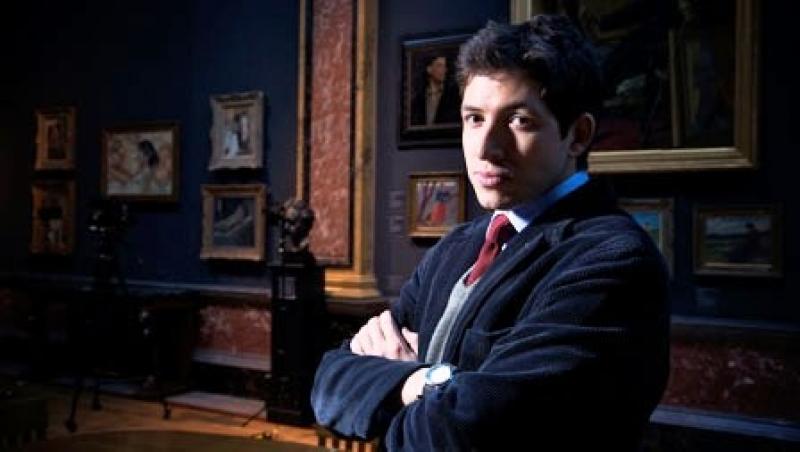British Masters, BBC Four/ The World's Most Expensive Paintings, BBC One | reviews, news & interviews
British Masters, BBC Four/ The World's Most Expensive Paintings, BBC One
British Masters, BBC Four/ The World's Most Expensive Paintings, BBC One
From the ludicrous to the rivetingly vulgar

Does James Fox fancy himself as the Niall Ferguson of art history? I ask because clearly this latest addition to the growing pantheon of television art historians wants to do for British art what Ferguson sought to do for the British Empire. He wants us to stop apologising, and to admit that we’re simply the best, better than all the rest. And though I grant you he is similarly photogenic (with a touch of that swarthy, swaggering arrogance, too) the ratio of plausible statement to incredulity (my own, whilst spluttering and tweeting my incredulity) was considerably weighted towards the latter.
Does James Fox fancy himself as the Niall Ferguson of art history? I ask because clearly this latest addition to the growing pantheon of television art historians wants to do for British art what Ferguson sought to do for the British Empire. He wants us to stop apologising, and to admit that we’re simply the best, better than all the rest. And though I grant you he is similarly photogenic (with a touch of that swarthy, swaggering arrogance, too) the ratio of plausible statement to incredulity (my own, whilst spluttering and tweeting my incredulity) was considerably weighted towards the latter.
Share this article
Add comment
The future of Arts Journalism
You can stop theartsdesk.com closing!
We urgently need financing to survive. Our fundraising drive has thus far raised £49,000 but we need to reach £100,000 or we will be forced to close. Please contribute here: https://gofund.me/c3f6033d
And if you can forward this information to anyone who might assist, we’d be grateful.

Subscribe to theartsdesk.com
Thank you for continuing to read our work on theartsdesk.com. For unlimited access to every article in its entirety, including our archive of more than 15,000 pieces, we're asking for £5 per month or £40 per year. We feel it's a very good deal, and hope you do too.
To take a subscription now simply click here.
And if you're looking for that extra gift for a friend or family member, why not treat them to a theartsdesk.com gift subscription?

Comments
...
...
...
...
...
...
...
...
...
...
...
...
...
...
...
...
...
...
...
...
...
...
...
...
...
...
I would say "he is enchanted
...
...